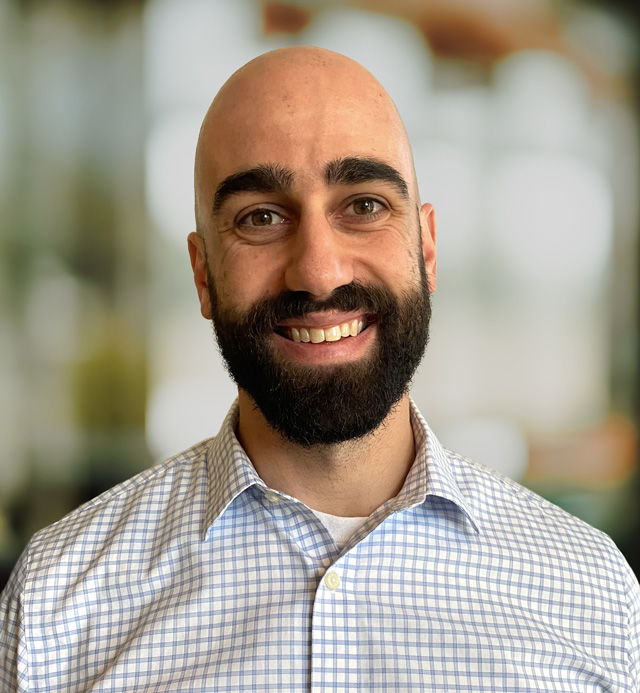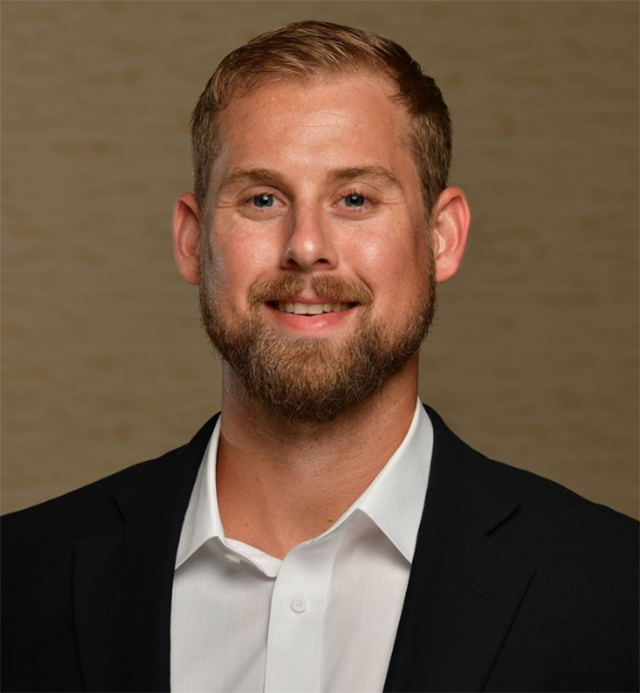-
Analysis Group Veterans Share Their Paths to Economics Consulting
In honor of Veterans Day, we interviewed two Analysis Group employees who served in the US Armed Forces. We spoke to Manager Michael Bender and Associate Harrison Holtz about their service, the transition back to civilian life, and how the skills they gained prepared them for their Analysis Group careers.
What was your career path to AG?

Harrison Holtz: Associate, Boston
Harrison: I worked in corporate finance at GE Capital before leaving to serve in the military. I served in the US Navy as a surface warfare officer, which means I held a variety of different roles on ships at sea. At different times, I drove and navigated warships, was a search and rescue swimmer, ran an engineering plant, and oversaw air and missile defense operations.
After the military, I received my M.B.A. from the Yale School of Management.
Michael: Following graduation from Washington and Lee University, I served for eight years as an Army officer and Black Hawk helicopter pilot. Shortly after leaving active duty, I earned my M.B.A. at Duke University’s Fuqua School of Business, completed AG’s internship, and joined AG full time.
Why did you choose AG?
Michael: I was drawn to the people, the lifestyle, and the autonomy of work. During my time in the Army, I always felt like I was surrounded by some of the most competent military professionals in the world, so I was looking for a similar atmosphere in which I could also work with the highest caliber of intellectuals in the private sector. I also spent eight years on the move, transitioning between units and deployments, so I appreciated that AG offers a stable work environment that requires minimal travel.
Lastly, I became accustomed to having a high degree of autonomy leading my own teams and units, so I was happy to find that AG’s staffing model provides individuals a certain level of ownership over their career and projects.
What types of skills did you gain from your time in the military that you believe transferred in support of your career?
Harrison: The most transferable skill is a passion for working in and leading teams. The military taught me that part of becoming a good leader is knowing how to be a good follower. I’m fortunate to be surrounded by so many talented people who are willing to commit to my development. For now, I’m trying to learn as much as I can from the people on my team – but I’m also incredibly excited to grow as a leader here at AG.
What was it like joining AG after serving in the military?
Harrison: The biggest difference is the organizational structure. The chain of command in the military is very structured and rigid, but the organizational structure at AG is very flat with a fluid internal labor market. It can be a bit of a culture shock, but it’s a system that works really well.
What do you enjoy most about your work? What do you find most challenging?
Michael: I love how stimulating the work is. I always feel like I’m learning something new and working on cutting-edge economic problems that require very technical solutions. It also doesn’t hurt that our cases are typically headliners involving Fortune 500 companies.
For me, the challenge, and what I believe sets us apart, is to apply an academic framework to a real-world scenario that often involves atypical conditions, and then to explain that framework in a way that anyone can understand.
What advice would you give to a veteran or member of the active military who’s interested in economic consulting?
Harrison: My advice would be to reach out! Understanding the scope of available opportunities from a non-traditional background can be incredibly challenging – but talking to people currently in the role can add a lot of clarity to your search.
Michael: I completely agree with Harrison – talk to a veteran at AG! I think most veterans are just unaware of what life looks like as an economics consultant, since the field is not as heavily marketed as some other industries, but that they’d also be excited once they learned more about the industry.
What is it like to work in your office? How would you describe the culture?
Michael: Our Boston office is AG’s largest and has all the resources and liveliness you’d expect. I think every AG office has certain common cultural characteristics – like an open-door policy and collaborative nature – and that’s definitely true in Boston. I love being able to continually see new faces and meet people who work in practice areas that I don’t normally interact with.
What is the veteran community at AG like? Have you been able to connect with other veterans at AG?
Harrison: The veterans at AG were some of the first people I talked to upon joining the firm, and it was great to connect with people who have shared experiences. It’s a small community – but it’s growing.
Michael: Modest, but strong and growing! We often connect informally, but since we now have more of a presence at the firm, we’re concentrating on the development of more formal opportunities for our veterans to connect and working on ways to advance more veteran-oriented initiatives.
What do you do when you’re not working?
Harrison: I enjoy spending time with my two sons, reading, perfecting a cup of coffee, and jiu jitsu. I also love waking up early and spending the first hour of the day on something I enjoy – it makes me a much better person for the rest of the day.
How do you find a suitable work-life balance?
Michael: At AG you have a lot of control over your caseload and schedule. For example, my wife and I recently had our first baby, so I intentionally designed my schedule to allow me to work a bit more in the winter and spring and a bit less in the summer and fall. I had the flexibility and control over my career to make those choices. Having control over my work-life balance was a driving force that led me to transition from the military to a civilian career, so I am really happy to have that level of flexibility here at AG.
Explore our roles and apply here. To learn more, connect with us at recruiter@analysisgroup.com.
This feature was published in November 2022.


